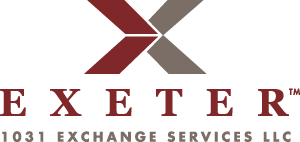State of Pennsylvania: Revenue Department Advises on Treatment of Section 1031 Tax-Deferred Like-Kind Exchanges
Daily Report for Executives
State Taxes
Monday, November 13, 2006
Although Pennsylvania personal income tax law does not contain a provision analogous to Section 1031 of the Internal Revenue Code, a gain or loss on like-kind exchanges does not have to be recognized at the time of the exchange if a taxpayer's method of accounting permits the deferral of gain or loss, according to bulletins issued Oct. 20 by the Pennsylvania Department of Revenue (PIT Bulletin No. 2006-07, RTT Bulletin No. 2006-01, and SUT Bulletin No. 2006-01).
A taxpayer may not change his method of accounting just to obtain a tax benefit for a particular transaction, the department further advised. The taxpayer must use the method of accounting on a consistent basis, and the method of accounting must clearly reflect his income.
Federal tax code Section 1031 provides that recognition of gain or loss can be deferred when property held for productive use in a trade or business or for investment is exchanged for property of a like kind and is held for productive use in business or investment.
Under the statute, an exchange of properties may be recognized, even when the transfer does not occur simultaneously, as long as the transfers occur within specifically defined statutory periods, the department noted.
Realty Transfer Tax Treatment
If title to Pennsylvania real estate is conveyed in a Section 1031 exchange, the document of conveyance is subject to tax under Pennsylvania Consolidated Statutes Section 8102-C, the department said. In simple exchanges involving a trade of properties, the department advised, Pennsylvania's realty transfer tax is due on the document of transfer for each property.
In a multiparty exchange, a qualified intermediary (QI) or exchange accommodation titleholder (EAT) is interposed between the ultimate grantor and grantee of relinquished or replacement properties, the department said, and two transfers are required to convey the real estate between the grantor and ultimate grantee. Accordingly, multiparty deferred exchanges can result in multiple impositions of tax on the same property either relinquished or replaced, the department noted.
The exclusion under Pa. Cons. Stat. Section 8102-C.3(11) for documents that transfer title to real estate from an agent or straw party to a principal is not applicable to QI or EAT transfers to obtain the deferral of gain or loss, the department said.
When an agent or straw party purchases property for a principal, the department noted, he holds title to the property for the benefit of the principal, and ownership of the property is imputed to the principal. In a multiparty deferred exchange, if ownership of real estate held by a QI or EAT
can be imputed to the taxpayer as would be the case in an agent or straw party relationship, the taxpayer would be considered to be the owner of both the replacement and relinquished property at the same time, the department explained.
Thus, the department said, there could be no exchange, and the taxpayer would not qualify for the deferral of gain under Section 1031.
To obtain the deferral of gain or loss under I.R.C. Section 1031, the department observed, practitioners structure multiparty exchanges so that QIs and EATs are the actual owners of the relinquished or replacement property. By structuring multiparty deferred exchanges in this manner, the taxpayer obtains the deferral of gain or loss on the exchange for federal income tax purposes. This transaction structure, however, precludes application of the agent or straw party exclusion for Pennsylvania realty transfer tax purposes, the department advised.
Sales and Use Tax Treatment
Sales and use tax applies when a party makes a like-kind exchange of tangible personal property because Pennsylvania sales and use tax law defines a sale at retail as any transfer for consideration of the ownership, custody, or possession of tangible personal property, the department stated.
If the party making a like-kind exchange obtains the replacement property from a vendor, who will take the property to be exchanged in lieu of the whole or any part of the purchase price of the property, the vendor is permitted to reduce the purchase price by the amount the vendor allowed the purchaser for the trade-in, the department determined. The trade-in, however, must occur at the same time as the purchase, the department stated.
If an exchange occurs through the use of a QI, and the property to be exchanged is eligible for the isolated sale exemption, the sale to the intermediary is not subject to tax, the department advised. The replacement property purchased from the QI, however, is subject to tax if the purchaser has
no valid reason for exemption, and the QI is a vendor of tangible personal property if the QI engages in I.R.C. Section 1031 exchanges as a business, the department said.
The replacement property's purchase price may not be reduced by the amount the QI allows for the property traded in, unless the QI accepts the property traded in in lieu of all or part of its purchase price of the replacement property, and the QI purchases the property traded in at the same time it sells the replacement property to the party making the trade-in, the department said.
The Pennsylvania bulletins are available on the Internet at http://www.revenue.state.pa.us/revenue/cwp/browse.asp?a=318.
By Richard Martin
218 DER H-2, 2006
END OF DOCUMENT
